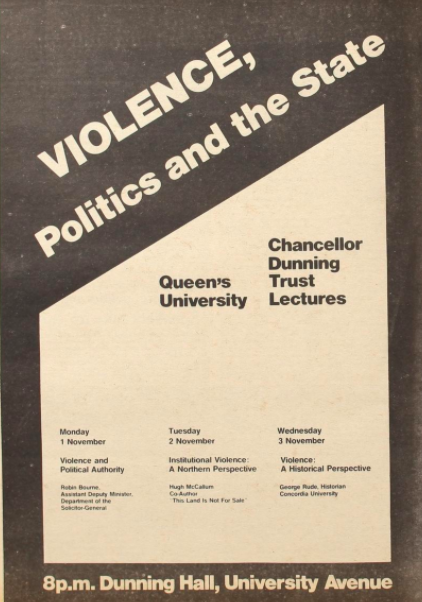
Robin Bourne was Assistant Deputy Minister of the Police and Security Planning and Analysis Branch at the Ministry of the Solicitor General from 1971-1979. The Police and Security Planning and Analysis Branch was responsible for the analysis of threats to Canada’s international security and the formulation of law enforcement and crime prevention policy. After numerous military postings, he moved to the External Affairs and Defence Secretariat of the Privy Council. In 1981, Bourne was appointed Assistant Deputy Attorney General for Police Services at the British Columbia Ministry of the Attorney General. He retired from this post in 1989 and died in 1994.
Bourne began his lecture by addressing the need for security, then outlined government policies that dealt with internal security, and ended with the implementation of those policies and a consideration of safeguards for civil liberties and human rights. The responsibility of government policies was to not just protect Canadian citizens, but also to protect the democratic process itself. Bourne explained Canada’s security policies and commented on the complications posed by the provincial jurisdiction over criminal justice. While there were existing civil rights safeguards that prevented oversteps in the name of security, Bourne saw a need to increase public trust in and public knowledge about internal security. Bourne highlighted that the government was planning to re-introduce human rights legislation to Parliament shortly, along with an Access to Information process. He concluded by suggesting that internal security would continue to be of great concern in the future, especially as economic difficulties increased which might create explosive situations.
Listen to his lecture below.